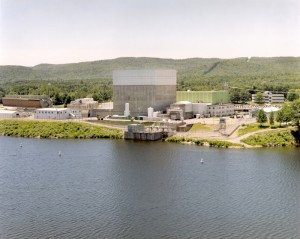By Chris Warren
I’ve spent most of my adult life trying to reduce the burden I personally place on the Earth’s resources. It’s been an incremental project taking place over many years and has no set end point, nor is it always easy to define how or if a conservation method is effective. I honestly have no idea if everything, or anything, I’ve done has made a difference.
Keeping the planet green and clean should be something we do as individuals because it’s right and good and not because the government or some activist group demands it. There is a place for laws and regulations; how far they should go is another matter. It is a sad reality that we are often compelled by law to do what we should be doing on our own anyway. Do we really need “no littering” signs? Having them implies two false conclusions: One, that those who are inclined to litter will refrain from doing so because a polite little notice keeps them in line; and two, that littering is allowed as long as there is no sign specifically prohibiting it.
This summer I completed upgrading nearly all the lights in my house to high efficiency LEDs. It’s something I’ve wanted for a long time but avoided due to the expense of LED bulbs. The cost of the bulbs has come way down and finally, I can cross this item off my wish list. A big chunk of my household electricity comes from solar panels so I am very aware of the need to make the most of every watt. The only standard bulbs I have now are in lights I hardly ever use anyway, such as in the closets and garage. It is gratifying to reduce my dependence on commercial electricity and the pollution it produces without giving up modern conveniences. I’m still far from being “off the grid,” but I am a lot less on it than the average person.
The Energy Independence and Security Act of 2007 was signed by President George W. Bush and introduced phased in mandates, the last of which take effect this year. What is sneaky about this legislation is that it technically does not ban anything. It instead imposes energy efficiency requirements that no incandescent lamp could ever achieve, forcing a default switchover to LEDs. I do not like this law mostly because it smells of regulatory “nanny state” overreach, however I have to admit it did have the unintended positive consequence of bringing the cost of LED lightbulbs down. As more people started using them, manufacturing economies of scale kicked in and within a few years LED lights were no longer a high tech, high end luxury item. They are still pricey compared to old-school incandescent bulbs, but within reach for most consumers. The EISA, for all its many flaws, succeeded in accelerating what the free market would have done on its own anyway.
When I stopped by the local do it yourself emporium to buy my LED lights, the choices were breathtaking. It was somewhat of a surprise that the previously-simple act of purchasing a lightbulb now required, among other technical considerations, an understanding of the Kelvin color temperature scale. Without the helpful charts and working sample lights on display in the store, I would have needed google to figure out that 2700 degrees Kelvin and 800 lumens is the equivalent of an old-school 60 watt incandescent light. I felt kind of foolish for all the time and effort I was spending comparing options and prices. It was, after all, just a lightbulb. I kept telling myself that times are a-changin’ so I had best get used to it and learn the new ways.
LEDs will last tens of thousands of hours longer than their incandescent predecessors and consume a small fraction of energy for the same light output. The theory is this double-benefit will more than offset the higher initial cost of the device itself. It’s not the good deal it seems, especially if you’re on a tight budget to begin with. Spending $5-$50 up front on a single lightbulb under the premise that you’ll earn a profit over the next decade or so isn’t much of a selling point when you also need to buy groceries for your children today.
Even though I have many misgivings about the EISA, now that it is law I want to see it succeed, at least the lightbulb part. Years from now there will be studies and statistics making big claims of how much energy was saved and pollution avoided because of LED lights. But in the same way my individual efforts can’t be quantified, I do not believe meaningful data on the benefits of LEDs will ever be known. Of course, that won’t stop interested parties from both ends of the issue from coming up with something that “proves” their point. LED technology was a long time coming and I’m really glad it’s finally ready for consumer use because my new lights have eased the burden on my solar panels and freed up hundreds of watts I can use for some other purpose. For my personal situation, they are a clear winner even as I know in terms of the bigger picture LEDs are not the magic potion environmentalists want everyone to think they are.
I may be a dreamer for thinking people will do the right thing without being ordered to. It’s a nice thought that hardly ever happens in reality and I can’t resolve the conflict of my dislike for laws that mandate good behavior with knowing many people won’t behave unless the law makes them. There is no easy path to convert philosophy into practical life, other than to do the right thing and take a chance that others will notice and follow along. If living by example is the best teacher, then I hope the class is paying attention.



